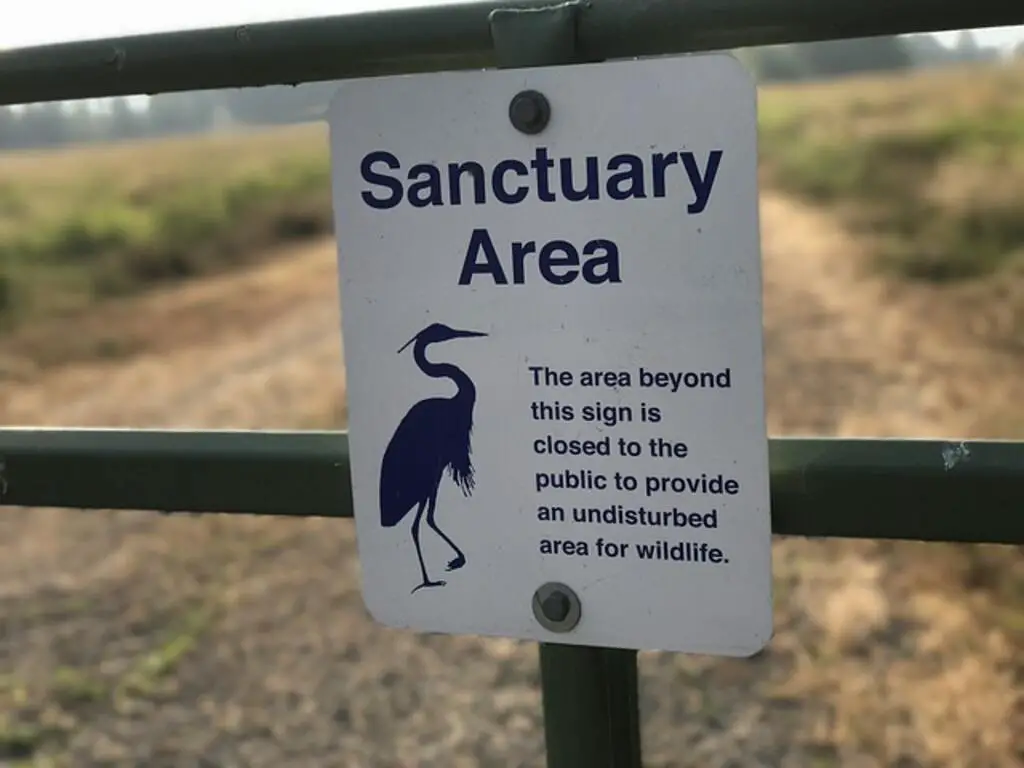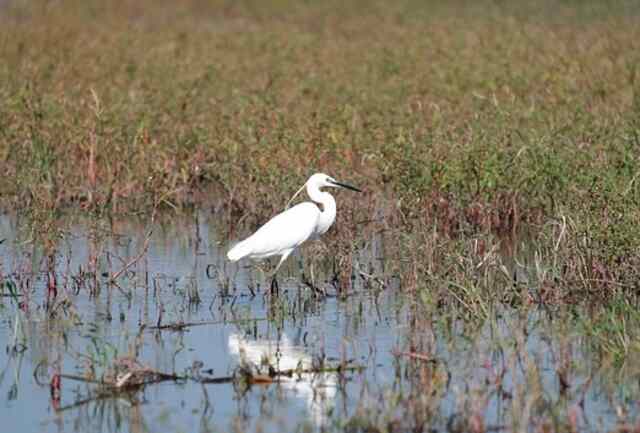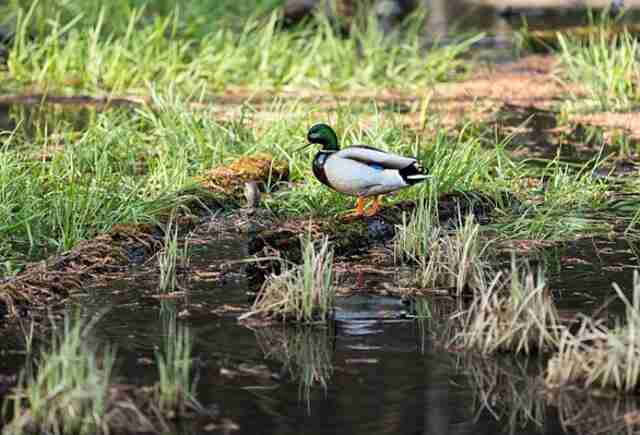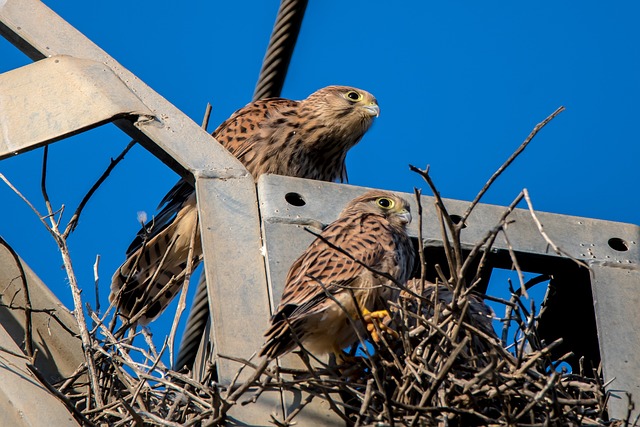Birds play a crucial role in maintaining the delicate balance of ecosystems worldwide. Their conservation is not just about protecting individual species; it’s about safeguarding biodiversity as a whole. This article explores the vital importance of bird conservation efforts in preserving our planet’s rich and interconnected web of life.
Table of Contents
Why is bird conservation important?
There are many reasons why bird conservation is important, both for the birds themselves and for the wider environment. Here are just a few of the most critical reasons:
- Birds play a vital role in ecosystems: Different species of birds are vitally important to a variety of ecological systems, assisting the plants within them to reproduce and thrive. For example, many of these species act as pollinators that help the plants to reproduce. Some birds, such as vultures, act as important recyclers that can actually help clean the environment by disposing of dead animals and waste products.
- Birds are important indicators of environmental health: Birds are highly sensitive to changes in the environment, and declines in bird populations can be an early warning sign of larger environmental problems. As an example, a decline in bird populations can signify a decline in the overall wellness of the environment, including habitat loss, pollution, and climate change.
- Birds help to maintain biodiversity: Birds play a big role in maintaining biodiversity, since they are keystone species that help numerous other species by ensuring they are able to survive and reproduce. Which means the disappearance of birds can cause widespread effects on the environment and can cause a drop in biodiversity.
- Birds have cultural and economic significance: Birds are not merely valued for their biological importance to the ecosystem: Birds possess cultural as well as financial worth. In certain areas, avian populations are regarded to have special significance, simply because they are seen as symbolic prosperity properties, bringing luck, liberty, and other good fortune. The same principle applies to bird-watching as a hobby, as this activity is an important source of income for many communities.
What are the threats to bird populations?
There are many different factors that are threatening bird populations and their habitats, including:
Habitat loss and degradation
The top concerns bird populations are currently facing are the depletion and degradation of the habitats they depend upon. A number of these threats come from the draining of forests, the creation of cities, and the conversion of agricultural areas.
This damage is having an influence on bird populations, impairing their capability to thrive. Consequences of such alterations are mitigated by the encroachment of these birds into regions dominated by different species.
Climate change
Climate change is also a significant threat to bird populations, since it can result in alterations in weather, sea levels, and food availability.
This can present problems for birds, making it hard to for them to find food and ideal breeding territories, putting their populations at risk.
Pesticides and other pollutants
Pesticides are substances that are used to control undesirable pests in agriculture. However, they have additionally had detrimental effects on agricultural bird populations.
Pesticides can either disrupt birds directly or contaminate their food and habitats, making it difficult for them to survive and reproduce.
This puts their populations at risk and emphasizes the importance of individuals being careful with pesticide use.
Invasive species
The presence of invasive bird species may pose a threat to the local bird population through competition for vital resources like food and shelter. This may lead to a decrease in the number of native birds and a deterioration of biodiversity in that area.
What can be done to conserve bird populations?
There are many different steps that can be taken to help conserve bird populations and their habitats, including:
Protecting and restoring habitats
Preserving and restoring habitats is one of the most important steps in conserving bird populations. Without suitable habitats, birds may be unable to find food or nesting sites, or they may struggle with competition from other species. To conserve bird populations, it is necessary to protect existing habitats, restore degraded habitats and create new ones.
Protecting existing habitats involves efforts such as reducing human activity within them; preventing poaching of birds and their eggs; discouraging predation by animals like cats and dogs; limiting disturbance from noise pollution; controlling the spread of invasive species; and managing natural resources within the habitat sustainably.
Additionally, restoring degraded areas can involve removing invasive plants, re-establishing native vegetation, restoring wetlands or grasslands, monitoring water levels to ensure adequate supply for birds’ needs, and avoiding activities that could disrupt a balanced ecosystem.
Reducing the use of pesticides and other pollutants
Reducing the use of pesticides and other pollutants is essential for protecting bird populations and their habitats. Pesticides are toxic substances that can enter the environment through runoff, leaching, or volatilization, contributing to a range of environmental problems like water contamination and air pollution.
While some birds may be able to tolerate small amounts of these toxins, large concentrations can lead to population declines and habitat loss due to reduced food supplies or health impacts. In addition to the direct effects on bird populations, the presence of pesticides in their habitats can also have far reaching consequences.
When toxic substances enter ecosystems they can cause changes in species composition by affecting entire food webs from top predators down to primary producers. In turn this can affect biodiversity overall by having an impact on nesting sites or other ecological services such as pollination or seed dispersal.
Monitoring and researching bird populations
Bird populations are essential to global biodiversity and the health of our environment. Understanding birds is an important part of conservation, this can be done by tracking their migration, breeding and other factors such as climate change. By monitoring bird populations, we gain a better understanding of their needs and how they interact with their environment.
Monitoring bird populations gives us insight into migratory trends and patterns over time. Migration is key to species survival; it helps birds adjust to seasonal changes in resources like food or nesting sites.
Breeding also plays a vital role in the health of bird populations – tracking breeding behavior in different habitats provides valuable information about animal behavior and population dynamics.
In addition, tracking how changing temperatures or weather affects birds allows us to assess the impacts that climate change can have on species survival rates.
Engaging the public and raising awareness
Engaging the public and raising awareness of bird conservation is a powerful way to build support for conservation efforts. Birds are integral components of our ecosystems and add beauty, sound and movement to the natural environment. In light of this, it’s imperative that we work to increase public knowledge and understanding of birds in order to create a greater appreciation for them.
There are many ways to engage the public on bird conservation, such as educational events and nature walks. People can learn about what species are in their area, how they interact with their habitats, and how they may be threatened by human activities or development.
Additionally, popular media outlets such as newspapers or television can be used to share stories about birds and highlight conservation success stories. Raising awareness around bird conservation can help people understand why it is important from a scientific standpoint as well as an emotional viewpoint.
Implementing conservation laws and policies
Conservation laws and policies are essential for the protection of birds and their habitats. These laws help to ensure that our environment is clean, safe, and healthy for all species. Implementing these conservation laws and policies has become an increasingly important priority in recent years due to the global increase in threats to bird populations.
By establishing standards, regulating pollutants, and funding conservation efforts, conservation law helps prevent the destruction of habitats while preserving natural resources like soil, water, air quality and biodiversity.
Conservation also ensures that human activities do not negatively impact birds or their environments by limiting emissions from automobiles or factories as well as controlling deforestation practices.
Additionally, this type of legislation allocates funds to research strategies for conserving bird populations like protecting migratory paths or restoring wetlands; thus allowing us to better understand how we can protect them for future generations.
Conclusion
In conclusion, bird conservation is a mindfully crucial issue, as environment and avian populations are vulnerable to an array of threats. By supporting and creating safe habitats, reducing the use of pollutants, conducting scientific studies and polls on bird populations, raising awareness about the issue, and implementing regulations and laws, we can help to promote bird conservation and prevent their population decline.
FAQs: on the Importance of Bird Conservation
What is bird conservation?
Bird conservation is the practice of protecting and preserving bird species and their habitats. It involves conserving both native and migratory species, as well as the ecosystems that they depend on. Conservation efforts can range from local initiatives to broad-scale international collaborations.
The goal of bird conservation is to ensure that birds are able to thrive in their natural environment without human interference. This includes protecting them from threats such as habitat loss, climate change, exploitation, pollution, and predation.
Conserving birds also benefits humans through improved water quality, pest control, pollination of crops and plants, recreational opportunities for ecotourism activities like bird watching viewing trails or sanctuaries.
Bird conservation also helps preserve biodiversity by maintaining healthy populations of different species which in turn helps maintain a balanced ecosystem.
Why is bird conservation important?
Conserving birds and their habitats is a key component of maintaining healthy, balanced ecosystems – both terrestrial and aquatic. For example, many species of birds help disperse seeds, pollinate plants and reduce overgrown vegetation that can impede water flow.
Birds also play an important role in controlling insect populations by preying on them as food sources. Additionally, they provide valuable information about environmental health; evidence of declining bird populations often indicates broader environmental issues such as pollution or climate change.
What are some of the threats to bird populations?
Birds are among the most diverse and abundant animals on the planet, but their populations face a variety of threats. From climate change to habitat destruction, a number of factors are contributing to the decline in bird numbers worldwide. Understanding what these threats are can help us protect our feathered friends and ensure their continued survival for generations to come.
Habitat destruction is one of the biggest threats to bird populations around the world. Human activities such as logging, mining, and urban development all contribute to deforestation, which removes vital nesting sites for birds and other wildlife. Additionally, invasive species can displace native birds from their habitats by competing with them for food or even preying upon them directly.
Climate change also poses a huge threat to bird populations as it brings about shifts in weather patterns that make it difficult for some species to adjust and survive.
How can I help with bird conservation efforts?
Bird conservation efforts are incredibly important to the future of our planet! Fortunately, there are several ways that individuals can help support bird conservation projects. Below, we have outlined a few simple steps that anyone can take to contribute to these initiatives.
One of the most effective ways you can help with bird conservation is by participating in local clean-up days and planting native plants for birds to enjoy. These activities not only provide them with food and shelter but also create a safe place for their habitat.
Additionally, it’s important to advocate for protecting public lands from development or destruction which could disrupt bird habitats. You can also get involved in citizen science projects like monitoring avian populations through counts or tracking migration patterns – this data helps scientists understand how birds live and breed in different areas across the globe.
What is the future of bird conservation?
The future of bird conservation is an issue of great significance for the welfare of our planet. Not only do birds play an important role in maintaining the balance of nature, but also they are integral to our society as a source of enjoyment and education.
To keep birds safe and healthy, researchers have been exploring various strategies which can be implemented on a global scale from preserving their habitats to controlling invasive species.
The greatest challenge lies in finding ways to reduce human-caused mortality rates while still allowing people access to wildlife areas and resources.
Scientists believe that by focusing on both short-term and long-term goals such as limiting deforestation, increasing public awareness and reducing pollutants, we can make real progress towards protecting these creatures for generations to come.
Related Post:






